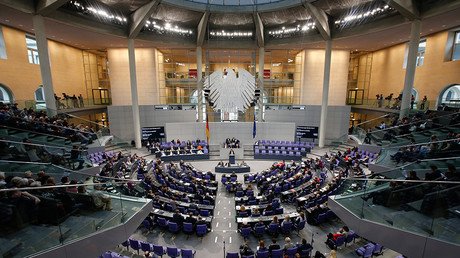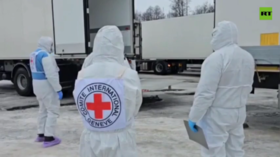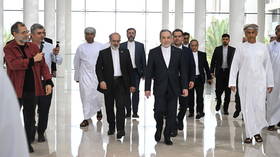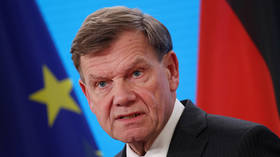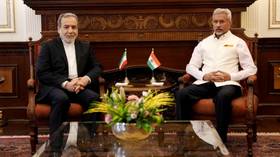Merkel dismisses Erdogan’s ‘incomprehensible’ criticism of Armenian genocide resolution
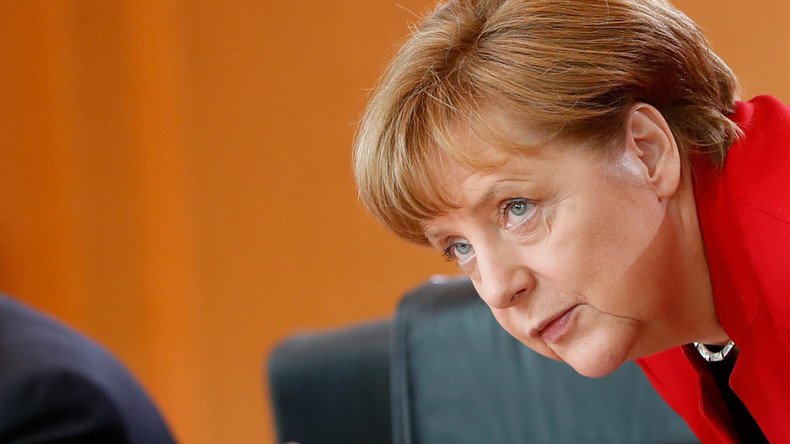
German chancellor has denounced Turkish government rants against Germany’s position on the Armenian genocide, calling the Turkish leader’s comments “incomprehensible” after he claimed that “hypocritical” German MPs of Turkish origin had “tainted” blood.
“The lawmakers in Germany’s lower house of parliament are freely elected without exception and the accusations and statements which have been made by the Turkish side are incomprehensible,” Merkel told a news conference on Tuesday. “It was clear with the passing of the resolution that there is a difference of views between the majority of the Bundestag and the Turkish side.”
On Tuesday Turkish Foreign Minister Mevlut Cavusoglu warned that Ankara might suspend the EU-refugee deal if it was not granted a visa-free travel to Europe, urging the German government to come forward and say it did not support the Bundestag’s position on the issue.
Last week the Bundestag’s lower house passed a resolution recognizing the 1915 mass killings of Armenians committed by Turkey as “genocide”. The move was followed by heavy criticism from Ankara and triggered a series of protests in Turkey. Ankara then recalled its ambassador to Berlin.
Exasperated with the Bundestag’s decision, Turkish President Tayyip Erdogan vowed to “never accept the accusations of genocide.” Saying Berlin had no right to state its opinion on the issue as it itself had a history of committing mass killings in the past, Erdogan urged Germany to atone for the Holocaust committed by the Nazis and a genocide in Namibia perpetrated by the German Empire in 1900s.
“First you need to answer for the Holocaust, then for the murder of 100,000 people in Namibia,” Erdogan stated. He also accused the MPs that voted in favor of the resolution of siding with terrorists and said 11 German politicians with Turkish roots need to have their blood checked for ‘Turkishness’.
“Their blood should be tested in a lab!” Erdogan said in a speech at Istanbul Sabahattin Zaim University on Sunday. “They are the long arm of the separatist terrorists placed in Germany.”
Ankara's mayor, Ibrahim Melih Gokcek, later tweeted a collage of the 11 politicians under the hastag #TheTraitorsMustLoseTheirCitizenship.
#ihanetcilervatandasliktanatilsinpic.twitter.com/3F2OOaCJzn
— İbrahim Melih Gökçek (@06melihgokcek) 5 июня 2016 г.
Following the passing of the resolution a number of the lawmakers with Turkish origin received death threats. Co-leader of the Green Party Cem Ozdemir and an instigator of the resolution was one of those targeted by Erdogan supporters and was later given police protection.
Ozcan Mutlu said that “as an MP, insults and threats have started to become normal,” Deutsche Welle reported. “But this takes things to a new level.”
Responding to Erdogan’s accusations of hypocrisy, Merkel said Germany would continue addressing the issue of the Holocaust. Speaking at a news conference during which Azerbaijan's President Ilham Aliyev was present, Merkel promised to try to help to resolve the conflict in the Nagorno-Karabakh region which she believed would improve Armenia-Turkey relations. She also advocated for the creation of a special historical commission to alleviate tension between the two countries.
During 1915, between 800,000 and 1.5 million ethnic Armenians were killed by Ottoman forces. Turkey disputes the scale of the tragedy. It also insists that the deaths were not the result of an intentional government policy, saying that the Armenians sided with Russia against their own government during World War I.
Relations between Ankara and Germany have been strained since a German comedian recited a poem insulting Erdogan in April. Upon Ankara’s request, Merkel green lighted the prosecution. Following the approval of the proceedings, the chancellor’s critics grew wary that she was compromising freedom of speech so not to “upset” Erdogan as he has become a key player in the EU-refugee deal aimed at tackling the migrant crisis.
